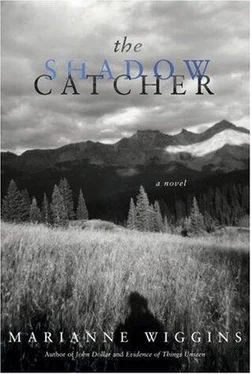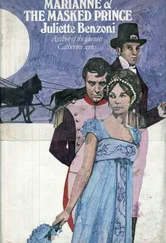Through this, through the bleak funeral and the setting of the stone, in the background, Hercules had wept. Grief trumps pride, it always does, real grief, the kind you never want to come, the kind that blots out everything, knots the safety rope of hope into a stranglehold and hones whatever happiness is left into a thorn. People in the house, visitors, had heard the weeping emanating from his upstairs room and they had looked at Clara as if she’d been remiss, as if something needed to be done to succor him. Such pain was not a welcome sound. It was discomfiting, it tore at their decorum — a child grieving publicly as only a widow might, in private, wasn’t something that the St. Paul crowd was used to, there was something in the sound of Hercules’s lament that was too raw, too uncontrolled, too criminal, too much like the sounds of protestation that the ancient gods had raised from men like Oedipus and Orestes and Job, that pagan and Old Testament crying that had dominated man’s existence before the muffling of the Christian era. Late at night, early in the morning, Hercules had cried the way Clara had wanted to, herself, with stark abandon. She had sat on his floor, patting on his back, had sat outside his room when he had locked her out, and listened, as one listens to a sermon, to a siren song or to an oracle. To have given oneself over to expression of emotion, that way, remained a thing beyond her reach, and she would think about that kind of abandon as she sat there in the dark, what it must be like to be consumed beyond one’s reason by raw feeling. To give in to it. Be shanghaied by it. To have one’s ability to reason vanquished by unconsolability, fury, rage — or, even, love. Hercules, by virtue of his grief, had seemed more alive than she had, in those days. But on their final day together in the house, on the day before they would move in, temporarily, with Lodz, Clara had been helping Hercules pack his clothes and he had begun to cry again, his blond head sinking to his chest, his narrow shoulders heaving. Stop, she’d whispered. Stop this now. You need to stop it, Hercules. We’ll be at Lodz’s tomorrow and you can’t keep on like this. Not in someone else’s house—
To her surprise he’d struck at her, his fist landing on her upper arm. “You’re always telling me to stop —I could have got them out, I could have saved them but you told me to stop —stop and go get Lodz — and when I came back they were dead —”
“Don’t blame me, Hercules,” she’d said, and he’d shaken his head in protestation, and she’d seen that look deep in his eyes, that terroir of terror that she’d seen the day their parents had been killed. “It’s my fault,” he’d begun, “I’m the one who wanted to go in there, I’m the one who said we should go in that stupid place, if it wasn’t for me they wouldn’t have been standing there—”
She’d taken him into her arms and let him weep — understood its deeper cause for the first time — and she’d rocked him back and forth, as if to exorcise all the unknown hells the dead leave in the living when they disappear into their guiltlessness.
Lodz’s house smelled of cabbage and his dead wife’s old clothes, and Clara and Hercules were more miserable in the damp spare room behind the pantry than they had ever been before, but at night, although Hercules still wept and had more reason to than ever, Clara could tell that he had tried to hide his misery by covering his body in the musty bedclothes and weeping in stale pillows. After a near interminable week of being at loose ends, despairing over where to turn and what to do, Ellen Curtis’s letter had arrived from Washington Territory and even Lodz, ever the pragmatist, declared it a godsend. From what was left after the forced sale of their parents’ property, plus a few contributions from well-meaning citizens, Lodz had managed to amass the sum of eighty dollars, which he gave to Clara in an envelope with the ominous advice to “use only as a last resort.” And this, he said, handing her two crisp ten-dollar notes, “is from me. One for you and one for Hercules. Buy yourselves something you can treasure. In your new adventure.” So she had taken Hercules with her to the Friday market down by the river — part State Fair, part marché des puces —where, within ten minutes, Hercules had spent his whole ten dollars on a used suit of clothes, cap, cape, waistcoat, worsted pants and stiff high collar, which he would probably outgrow within the month, but Clara hadn’t argued, just to see him smile. For herself, nothing had caught her eye until they came across a naval merchant who had on display an array of brass fittings, spyglasses, oars and seaman’s trunks. One of the trunks was tinted a pale yellow with a hand-painted reproduction of a familiar painting on its lid and gold stencils on its sides, the SS ICARUS . It was the copy of the painting that had caught her eye, her father had once kept a photogravure of it beside his easel, though this reproduction was far better, rich in color and showing the deft hand of a true artist. “It’s Dutch, that is,” the merchant said to try to sell her.
“How much do you want for it?”
“Don’t you want to see inside?”
“How much?”
He’d made a quick assessment of what he thought Clara could afford and told her, Seven .
She would keep her mother’s linens in it, and her mother’s tea service. And her father’s books on the Italian artists. But when she and Hercules had gone to lift it by its handles to carry it away, it proved heavier than it had looked. “The books I let you have gratis ,” the merchant smiled. Because he’d never otherwise get rid of them, Lodz had remarked when Clara showed them to him. “They’re in Dutch .”
“I think they’re pretty,” Clara had said. “I like the illustrations. What are they about?”
“How to build a telescope,” Lodz laughed. “You and your brother. Like your parents. Heads up in the clouds. Meanwhile feet without no shoesies.”
Clara had packed her meager valuables into the new sea chest and bound their other few belongings in cloth and rope and on the last Saturday in January Lodz had seen them off on the Northern Pacific train bound for Tacoma, Washington Territory, on what was known as General Custer’s line, the one his 7th Cavalry had ridden between St. Paul and Fort Abraham Lincoln, to which Custer had been assigned to protect the Dakota and Montana Territories from Sitting Bull and his land-happy Sioux.
Lodz had walked them to their seats, told them to speak to “no stranger, never, only train employees,” and then, with a surprising show of avuncular emotion, shed a Polish tear when he embraced them. As the train crept forward along the curving track out of St. Paul’s Union Depot, Hercules fogged the window, asking, “Will we see the cemetery from here?” and Clara had closed her eyes. I’m not looking back, she’d told herself.
Not that she’d been able to look forward, either — life with the strange Curtis brood held no happy prospect for her, except the hope that in Asahel, whom she knew slightly, and Edward, whom she didn’t know at all, Hercules might find a man, a hero in imagination, more suitable than Lodz to guide him through this present grief toward manhood. She was doing this for Hercules, she told herself. And therefore: for her parents.
They had been seated in the Ladies’ car — a polite designation which translated Women’s and Children’s Car , a segregation designed to keep the sexes clear of each other on the four-day journey and to keep impressionable young souls away from the general rowdy company of single males, mineralogists, con artists and roustabouts lighting out from the known states for The Territories. Their car was occupied out of St. Paul by the two of them, a troupe of nuns and a coal-burning potbellied stove in the center aisle to ward off cold. At St. Cloud, Minnesota, the first stop, a family with four children got on, the father going forward to the Men’s car when the mother settled in. Ragtag children, too, got on, while the train was stopped, a chorus of them, immigrants from less-favored states in Europe, Clara could tell from their dark hands and dark complexions, selling warm rolls, pickled eggs and heated stones to place beside one’s feet. Penny for a hot stone — she and Hercules were close enough, themselves, to that scrambling existence, so she bought two stones from a fierce-looking girl and when she’d opened her small change purse the girl had riveted her with a look that warned, Luck, not moral reason has given you your place in life. Where’s your mother? Clara had asked, in retaliation. No mother, the girl answered. Then we’re even, Clara tallied, handing her the pennies.
Читать дальше











